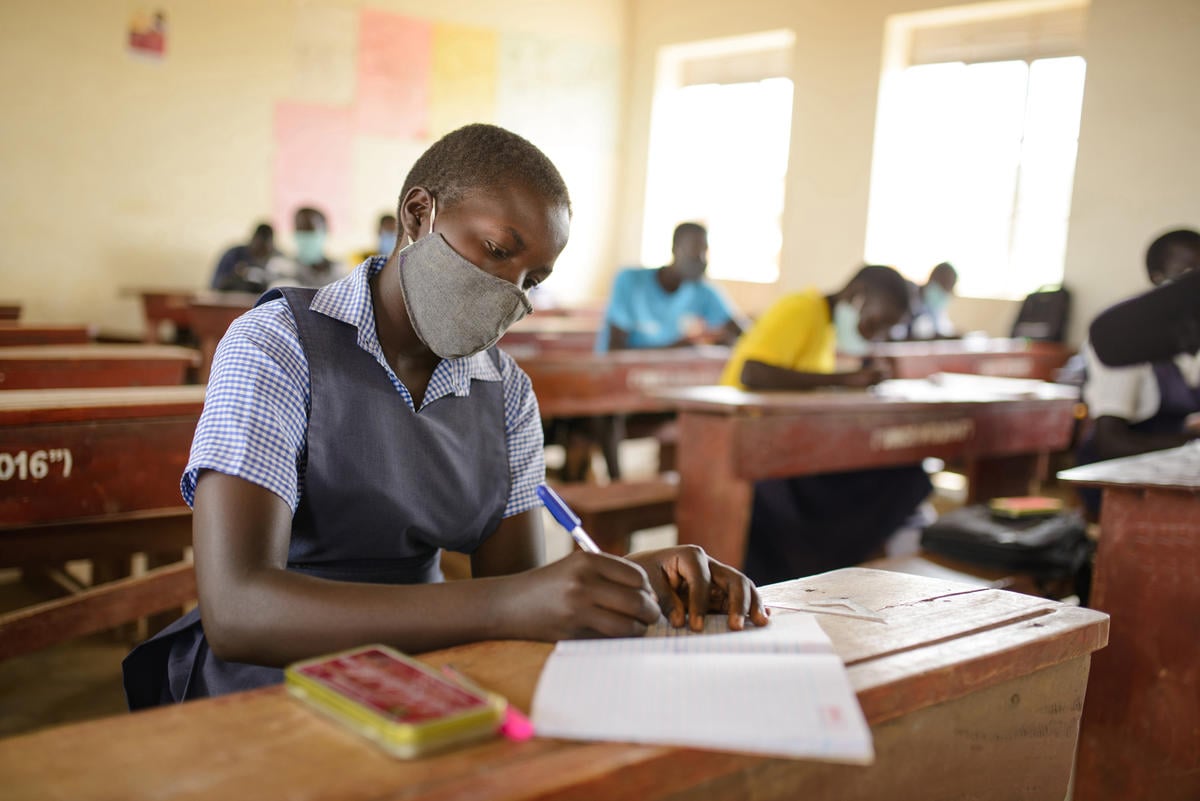UNHCR and Clowns Without Borders bring laughter to refugee children and their hosts in Zimbabwe
UNHCR and Clowns Without Borders bring laughter to refugee children and their hosts in Zimbabwe

It is early morning in Tongogara Refugee Camp in Zimbabwe. The bustling streets are quiet at this time of the day. But suddenly, a pickup truck with three clowns arrives in the camp bringing music, magic tricks and lots of humour to dozens of amazed children. The children follow the car, chatting and laughing and, in a few minutes, they reach a demarcated area under a big tree where they all sit and wait impatiently. The show is about to start. The clowns have arrived.
The independent international group Clowns Without Borders (CWB) and UNHCR partnered earlier this month (May) to bring laughter, joy and happiness to children from refugee and host communities in the Chipinge District as a prelude to World Refugee Day on June 20th.
"The importance of bringing happiness amongst children and forgetting the tensions in their lives for even a short time is important for building their resilience,” says UNHCR Representative in Zimbabwe, Abdoulaye Barry. “Bringing a smile to a child is a wonderful gift."
Clowns Without Borders was created in 1993 to deal with the suffering caused by the war in the former Yugoslavia, especially for children. They are professional clowns or circus artists who volunteer their time and talent to give children the opportunity to be just that – children.
"It was my first time to see clowns, so it made me very happy."
For ten days in May, three artists from the Spain based CWB performed daily shows in Tongogara camp and local primary schools.
"It was my first time to see clowns, so it made me very happy”, explains David, a five-year-old refugee from the Democratic Republic of the Congo (DRC), who enjoyed one of the shows. For Divine, a six-year-old refugee from Mozambique, the most surprising thing was seeing one clown carrying another one on his shoulders. "We are learning about balance in our physical education class, so it was amazing to see them."
Parents and children alike laughed and applauded during the one-hour shows which were also filled with acrobatics, dance, slapstick comedy and plenty of opportunities for the children to get involved in the fun.
"They get so excited that it's challenging to do the show because they try to touch the clowns and be close to the artists while they are performing."

The aid organization has worked with UNHCR in many countries, including Ethiopia, Ivory Coast, the Democratic Republic of the Congo (DRC), Uganda, Colombia, Jordan, Syria, Ukraine, Lebanon and Greece. Over the years, CWB's performances have brought healing, emotional support, laughter and community involvement.
A study commissioned in February 2017 by CWB at the Autonomous University of Barcelona demonstrated that their shows had a measurable impact on children's emotional state and symptoms related to depression, post-traumatic stress and behavioral conflict.
The effect was measured 11 weeks after the NGO had performed in different settings. It indicated that the positive impact of the CWB’s activity, was sustained during this period.
"We came here to create good memories for these children and their parents.”
Leonie Mwiro, a refugee and single mother of three, from the DRC, was thrilled with the show.
"You can see that children are happy with this initiative that helps them relieve stress,” she said. “We have been in Tongogara for the past eight years, and this is the first time we've seen something like this."

Tongogara hosts more than 15,000 refugees and asylum seekers, mainly from Burundi, the DRC, Mozambique, and Rwanda. Nearly half of them are children. Many were born when their parents after their parents fled their countries in search of safety, and only know the camp as home.
"We came here to create good memories for these children and their parents," states Javier González, one of the clowns.
"Clowns Without Borders created an awesome atmosphere for our refugee children,” explains Learnmore Munyikwa, Community Services Officer at UNHCR’s education partner Terre des Hommes. “Children are still reflecting on such moments and wishing that the clowns could come back again in the future. We hope so too!"









